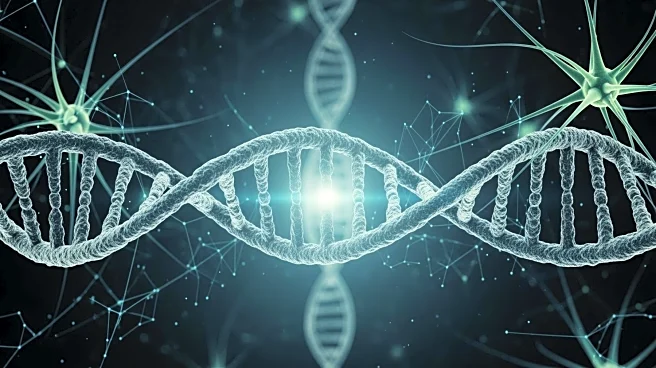What's Happening?
The concept of 'nutritional dark matter' is reshaping the food science landscape, revealing that only a fraction of the 26,000+ biochemicals in food are currently tracked by nutritional databases. This discovery, led by physicist Albert-László Barabási, highlights the complexity of food chemistry and its potential impact on health. The term draws a parallel to 'universal dark matter' in astronomy, emphasizing the unseen yet significant effects of these compounds. The field of 'foodomics' is emerging to explore how diet interacts with the body beyond traditional nutrients, linking food compounds to human proteins, gut microbes, and disease processes.
Why It's Important?
Understanding nutritional dark matter could revolutionize the food industry by transforming product development and personalized nutrition. As science uncovers the hidden biochemistry of food, manufacturers may need to rethink formulations to include bioactive compounds that interact beneficially with the human body. This shift could lead to the creation of functional foods and precision nutrition products, offering health benefits tailored to individual needs. The industry faces both challenges and opportunities as it adapts to this new scientific insight, potentially moving beyond reductionist approaches to embrace a more holistic view of food's role in health.
What's Next?
The Foodome Project is cataloging the hidden chemical universe of food, aiming to build an atlas of diet-body interactions and identify key molecules for health. This research could answer why certain diets work for some individuals but not others, and which food molecules might be harnessed for new drugs or foods. As the science progresses, the food industry will likely see increased demand for products that incorporate these findings, driving innovation in food technology and health-focused product lines.
Beyond the Headlines
The exploration of nutritional dark matter raises ethical and cultural questions about the future of food consumption and health. As the industry shifts towards more scientifically informed products, there may be debates over accessibility and affordability of these innovations. Additionally, the integration of foodomics into public health policy could influence dietary guidelines and consumer education, promoting a deeper understanding of food's complex role in human health.










